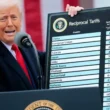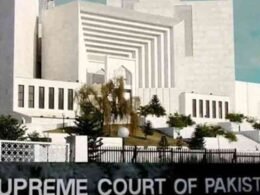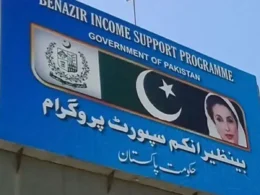The federal government published an order on Monday to impose an extra tax of Rs36 billion on cigarettes, Rs2 billion on the processing of tobacco, and lower levies on transport vehicles, raising a total of Rs38 billion in taxes.
Tier-1 brand cigarettes may see a price increase of 20 to 30 rupees each packet, while tier-2 brand cigarettes would see a price increase of 10 rupees per packet.
The government increased the advanced federal excise duty (FED) tax on tobacco manufacturing from Rs10 per kg to Rs390 per kg, which would be adjustable.
In order to secure the restart of a stalled programme and the release of a $1.17 billion tranche under an expanded $7 billion extended fund facility, Pakistan has moved to impose taxes on cigarettes and tobacco processing just prior to the International Monetary Fund’s (IMF) executive board meeting, which is scheduled to take place in Washington on August 29. (EFF).
The Tax Laws Second Amendment Ordinance 2022 was approved by President Arif Alvi. In a significant move, the government has also exempted small shops and traders from fixed taxes.
By giving incentives of Rs15 billion to traders, who are regarded as the PML-primary N’s support base, the government reduced the tax burden on retailers and reduced the tax collection target from Rs42 billion to Rs27 billion.
The government did not apply regulatory duties on luxury goods because they would be imposed through SRO after receiving tariff board approval and perhaps receiving ECC approval.
The FBR expects to raise between Rs5 and Rs14 billion in tax income through RDs, hence the overall revenue effect might reach between Rs50 and Rs52 billion.
When asked about the overall effect of taxation measures, FBR Chairman Asim Ahmed responded to The News, “We have taken additional taxation measures of Rs38 billion and provided incentives/tax relief to the tune of Rs19 billion so the net additional revenues will fetch over Rs19 billion during the current fiscal year.”
Till the new scheme is announced by the federal government, the previous regime prior to the Finance Act of 2022 will remain in force. The income tax rates for retailers will also be revised for retailers/small traders as planned by the government at the moment.
Interestingly, the government did not take any taxation measures on sugar bound beverages industry which is also injurious to the health sector.
With effect starting on July 1, 2022, the fixed tax scheme for retailers (other than tier-I retailers) on commercial energy connections has been removed, and the former system (in place prior to Finance Act 2022) has been reinstated by the adoption of this ordinance.
The federal government has the authority to develop any future plans for merchants to collect tax on business connections and to choose the details of such plans, such as the tax rate or amount and the implementation date.
According to the ordinance, retailers who do not fall under Tier 1 will be charged the tax through their monthly electricity bills at a rate of 5% where the amount of the bill does not exceed Rs20,000 and at a rate of 7.5 per cent where the amount is greater. The electricity supplier will deposit the money that is thus collected directly without deducting it from his input tax.
In contrast, the FED on locally produced cigarettes has increased from Rs5,900/1,000,000 sticks to Rs6,500/1,000,000 sticks for tier-1 and from Rs1,850/1,000,000 sticks to Rs2,050/1,000,000 sticks for tier-2 cigarettes. The FED on unmanufactured tobacco has increased from Rs10 per kg to Rs390 per kg.
The advanced tax rates for automobiles used for passenger transportation have been streamlined. The advance tax has been significantly reduced. The tax rate is decreased from Rs. 500 to Rs. 200 for non-air-conditioned transport vehicles with four or more seats but less than ten passengers, and from Rs. 1,000 to Rs. 375 for air-conditioned vehicles.
Tax rates for 20-seat non-air-conditioned cars are cut from Rs. 1,500 to Rs. 500 per seat. The tax rate for transport cars with air conditioning was lowered from Rs 2,000 to Rs 750 per seat.
The tax rate is cut from Rs2,500 to Rs1,000 per seat for non-air-conditioned cars with more than 20 seats. The tax rate for transport cars with air conditioning is decreased from Rs 4,000 to Rs 1,500 per seat on annual basis.
Cars used for passenger and goods transportation, as well as vehicles used by foreign diplomats and foreign diplomatic missions, are excluded from the imposition of capital value tax.
With effect starting on July 1, 2022, the Finance Act of 2022 that had previously removed the exemption on allowance and perquisite given or granted outside Pakistan by the government to its citizens for services provided outside Pakistan has been reinstated.
According to the sovereign agreement, the exclusion of revenue from Pak-Kuwait Investment Company dividends received by Kuwait Foreign Trading Contracting and Investment Company or Kuwait Investment Authority has been reinstated.
Sales tax exemption has been granted for the natural gas subsidy that consumers, including RLNG, receive from the federal or provincial governments.
The Finance Supplementary Act of 2022 removed the sales tax exemption for local sales of single-cylinder farm diesel engines with 3 to 36 HP. This exemption has already been reinstated.











